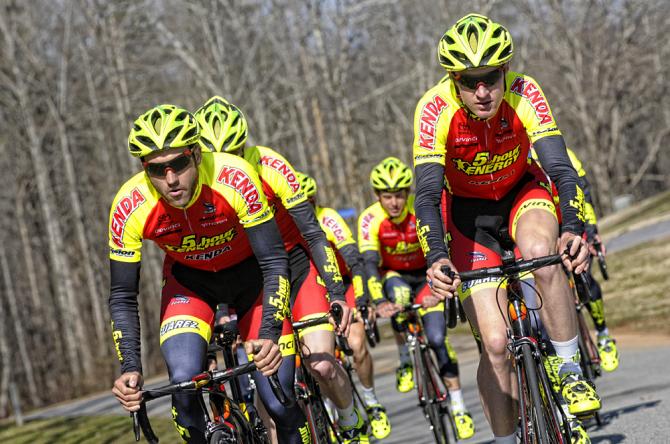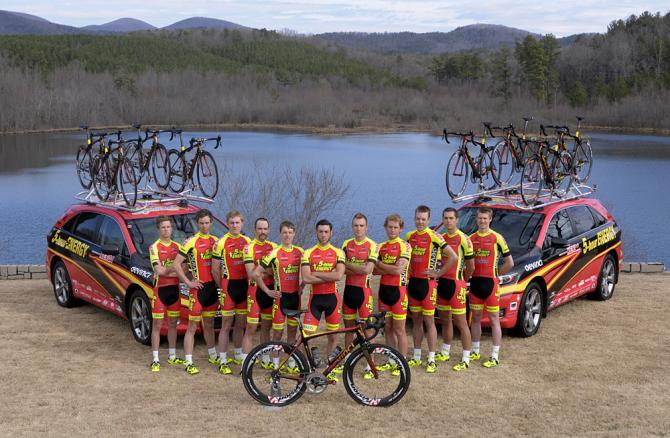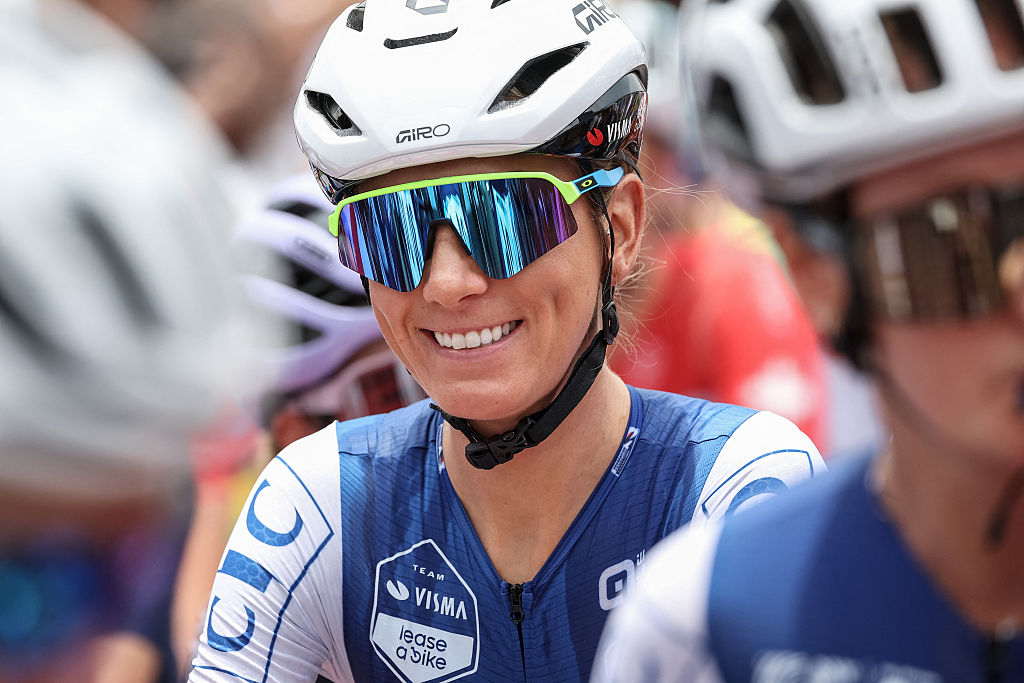Jake Keough motivated for leadership role at 5-hour Energy
Sprinter helping build his new team's lead-out train
The latest race content, interviews, features, reviews and expert buying guides, direct to your inbox!
You are now subscribed
Your newsletter sign-up was successful


Jake Keough's move in the off-season from the UnitedHealthcare team, where he had ridden for four years, to 5-hour Energy/Kenda took many by surprise. It seemed odd that the talented sprinter, who had ended his 2013 season with stage wins at two well-regarded UCI races, would step down from the Pro Continental ranks to a domestic Continental team.
But the 26-year-old from Sandwich, Massachusetts, recently told Cyclingnews that at some point last season, the direction he wanted to take had diverged from the direction UnitedHealthcare was going.
"I wanted to explore different opportunities, and I think the team, I don't know if they were focused in the same direction that I was, so we parted ways. I think that kind of speaks for itself," Keough said from the 5-hour Energy team camp in Georgia.
"I was with the team for four years, and we had a lot of success," he said. "I was able to build the crit team up from a group of guys that didn't really have anything. We were nothing, and we all got along well and built it. It was fun, but it was kind of time to part ways."
Before joining UnitedHealthcare, Keough cut his teeth on the US domestic criterium scene. As the oldest brother in a family of cyclists, he worked his way through the junior ranks on the East Coast and started the 2008 season with the CRCA-Sakonnet Technology Under-25 team. He moved to Kelly Benefit Strategies-Medifast in June of that season and stayed with the team [currently Optum Pro Cycling] until 2010, when he signed with UnitedHealthcare.
Keough began piling up the wins with UnitedHealthcare, which moved from the Continental ranks to the Pro Continental level in 2011. He took nine wins that season, mostly as part of the team's domestic criterium squad.
Over the past several years, Keough had begun proving himself at UCI stage races in Europe and elsewhere. In 2009, while riding with Kelly Benefit Strategies, he took three stages at the Vuelta a Uruguay, a UCI 2.2 race. He won the fourth stage of the UCI 2.1 Larry H. Miller Tour of Utah in 2012, and last season he won the final stage at both the Volta a Portugal (2.1) and the Tour of Qinghai Lake (2.HC), where he also finished second and fourth.
The latest race content, interviews, features, reviews and expert buying guides, direct to your inbox!
Keough didn't play as big a role on UnitedHealthcare's criterium squad last season as he had in the past, but he did take four wins and the overall at the Tour of America's Dairyland. He ended his season with a third-place finish at Boston's TD Bank Mayor's Cup, won by his younger brother and UnitedHealthcare teammate, Luke.
But when UnitedHealthcare released its 2014 roster late last year, Keough was not on it. That prompted 5-hour Energy director Frankie Andreu, who was losing team leader Francisco Mancebo, to immediately begin courting the sprinter.
"I worked hard to get Jake," Andreu told Cyclingnews at the time. "As soon as I saw that he wasn't on that UnitedHealthcare team, I jumped on the phone. I jumped at the chance to be able to bring him with us. I look forward to it."
Keough is one of six new faces on the 2014 5-hour Energy roster, which features just five returning riders. As a sprinter and one of the team's most accomplished riders, Keough recognizes he'll need to assume a leadership role as the group bonds and molds itself into a cohesive unit.
"You have to be a leader of sorts on the road," he said. "You're one of the guys they look to for results. I don't take any extra pressure, and it doesn't really affect me, but I think this year moving forward I'm looking forward to getting some results. So being part of a new team, a new squad, should be good."
Organizing a sprint train is one of the first orders of business for a team that aspires to success in bunch gallops, and during training camp in Georgia the team had the opportunity to go through the paces of a lead-out while making a video for the sponsors' marketing efforts. Andreu praised his new sprinter's willingness to take the reins.
"He's vocal, which is good, that's what I want," Andreu said. "It's part of the reason why I brought him on. He's vocal and he knows what works for him. So we're going to have to listen to his lead and get the guys on the front to be able to do that. But it's definitely going to be a learning process when we show up at the first races."
Keough agreed that the elements of a good lead-out can take some time to fine tune, but he believes the team will ultimately be successful in its efforts to put him in the position to win races. Building a sprint train from scratch also isn't new to Keough, he said, because he helped build UnitedHealthcare's dominant "Blue Train" as well, starting in 2010.
"That was before the Blue Train," he said. "We were in red-and-grey kits. So again, there was no lead-out when I came to that team, and we built it from the ground up. So I at least have that experience of basically four years of building a lead-out team."
But the holes in Keough's experience are what's motivating him this year. He said he's looking forward to competing in US events that he's missed because of race obligations around the world; he's never competed in the Tour of the Gila or the Tour de Beauce, for example. But Keough said he's not putting too fine a point on the list of races he's targeting, preferring instead to keep things simple.
"That question comes up a lot, 'Well, what are your goals?,'" he said. "It's easy to say, 'I want to do this race.' But for me, if I start a race and it's a sprint day and it's suited to me, that's the day I want to win. I think people can sometimes get caught up in looking down the road or looking at past history, but it's a bike race, you're out there to win. As a sprinter, your season is quantified in race wins. It's not quantified in second places or top 10s. It's race wins."
Growing up in Missoula, Montana, Pat competed in his first bike race in 1985 at Flathead Lake. He studied English and journalism at the University of Oregon and has covered North American cycling extensively since 2009, as well as racing and teams in Europe and South America. Pat currently lives in the US outside of Portland, Oregon, with his imaginary dog Rusty.
